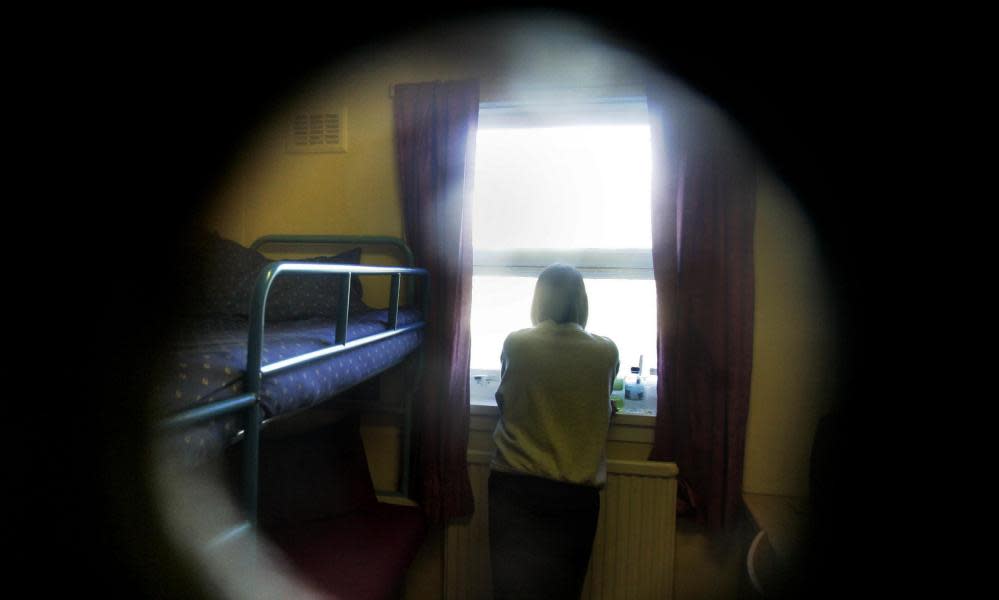Prisons watchdog condemns lack of action on rising female suicides

The prisons and probation ombudsman has hit out at a “lack of concerted and sustained action” following a rise in the number of suicides among female prisoners.
Nigel Newcomen said lessons identified in a new review of cases had been highlighted previously by his office and other inquiries but had not been implemented.
He warned that sweeping reform proposed a decade ago following a review of the experiences of vulnerable women in the criminal justice system had not materialised.
“I find it disheartening that many of the lessons we identify to prevent women in custody from taking their own lives repeat those in previous publications from my office,” said Newcomen, who is due to publish a bulletin examining 19 cases of women who killed themselves between 2013 and 2016.
“This suggests it is not knowledge that is the issue, but a lack of concerted and sustained action,” he added.
Suicides among female inmates have been on the rise, with 12 recorded last year – more than double than the number in 2015.
Newcomen’s report said care from individual staff was often very good but it also highlighted areas of “weak practice” and “basic failings”.
There was a “clear theme” of poor collaboration between mental health and custodial staff, according to the assessment.
It found cases where risk was not handled appropriately and evidence of inappropriate use of punitive responses to instances of self-harm.
The paper re-emphasises a number of lessons for prisons, saying that many are reminders of what is already included in their own rules and processes.
Newcomen said: “While we often identify examples of excellent and compassionate care by individual staff, and also recognise that prisons have been under enormous strain in recent years, there can be no excuse for not implementing essential safety arrangements that could ensure vulnerable women are better protected.
“It is to be hoped that delivering safer outcomes for women (and men) in prison will be at the heart of the government’s new prison reform agenda, and that this bulletin can assist with this and help to reverse the unacceptable and tragic rise in self-inflicted deaths.”
A record 119 people killed themselves in prisons in England and Wales in 2016 – an increase of 29 (32%) on the previous year, according to Ministry of Justice figures.
The record number of suicides in prison – amounting to one every three days – compares with the previous high of 96 in 2004 and represents a doubling of the rate since 2012.
Deborah Coles, director of the campaign group Inquest, said she was “exasperated by the scandalous lack of action despite the evidence presented to successive governments”.
“Lady Corston laid the blueprint for change 10 years ago and since then, a further 80 women have died in England and Wales.”
Coles said that behind the statistics of these preventable deaths were “human stories”.
“The majority of women in prison have common life experiences: domestic violence, abuse, addiction, homelessness and/or mental ill health. These are the very women who should not be imprisoned in the first place; what they need are women-centred community services, not a prison sentence.”
She said it was time to stop “using prison as the default response to women’s poverty and multiple disadvantages and invest in community services.”
“Ultimately, the responsibility for taking action rests with central government. Their failure to act will condemn yet more women to die in prisons ill-equipped and ill-resourced to deal with their complex needs.”
A government spokesperson said: “The safety of those in our custody is a priority and all prisons have procedures in place to support those at risk of committing self-harm or suicide.
“We have increased the support available to vulnerable offenders – especially during the first 24 hours in custody – and have invested more in mental health training for prison officers. More funding has been allocated to prison safety, and we have launched a suicide and self-harm reduction project to address the increase in self-inflicted deaths and self-harm in our prisons.
“We are also working closely with NHS England and Public Health England to improve mental health services for offenders at all points of the criminal justice system and to address these issues in our establishments.”
• In the UK, the Samaritans can be contacted on 116 123. In the US, the National Suicide Prevention Hotline is 1-800-273-8255. In Australia, the crisis support service Lifeline is on 13 11 14. Helplines in other countries can be found here

 Yahoo News
Yahoo News 
